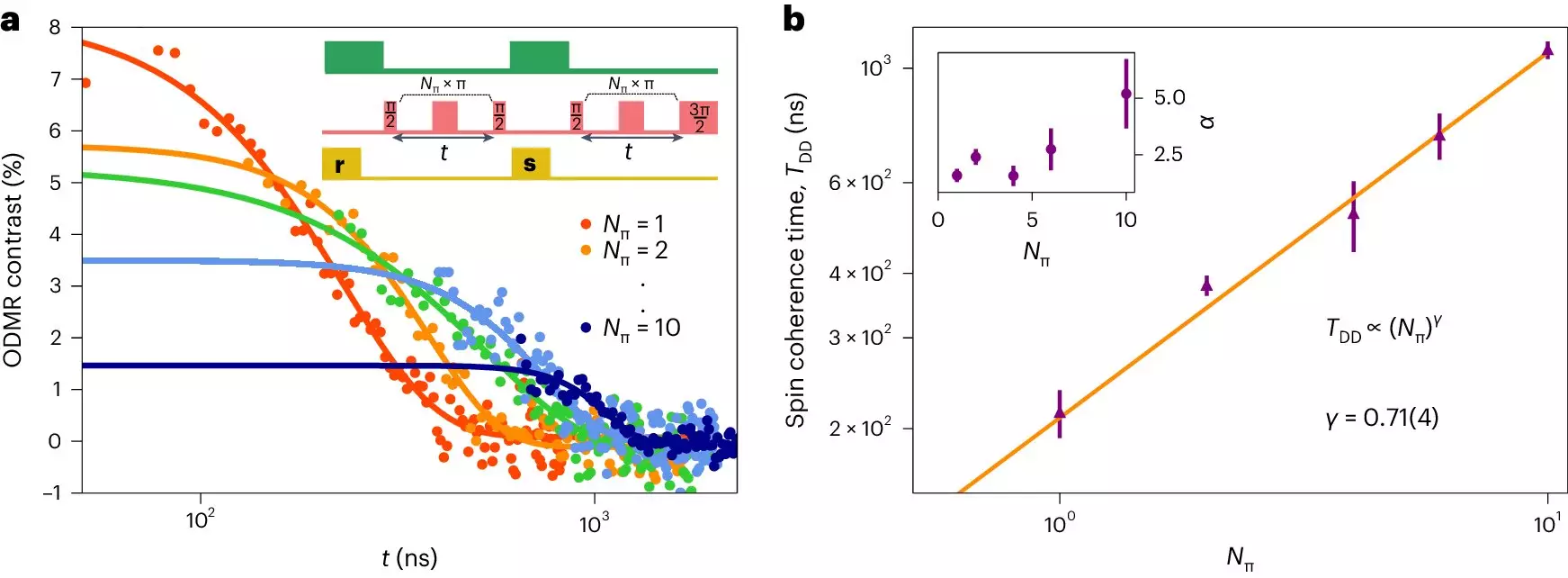Researchers from the Universities of Manchester and Cambridge have made a groundbreaking discovery in the world of quantum technologies. They have found that a single atomic defect in a layered 2D material can retain quantum information for an impressive amount of time at room temperature. This discovery highlights the immense potential of 2D materials in advancing quantum technologies. The researchers used hexagonal boron nitride (hBN) to demonstrate spin coherence, a property where electronic spins can hold onto quantum information under ambient conditions. This finding is significant as only a few solid-state materials have been able to achieve this level of spin coherence.
What makes this discovery even more remarkable is that the researchers found that these spins can be controlled with light. This ability to manipulate electron spins using light within these defects at room temperature is a feat that has never been accomplished before. Dr. Hannah Stern, the first author of the paper, emphasized the importance of fundamental investigations into new materials like hBN. She highlighted how studying the spin property of trapped electrons in hBN could pave the way for future quantum technologies. Each new promising system broadens the toolkit of available materials, bringing us closer to scalable implementation of quantum technologies.
While there is still much research to be done before these findings can be applied in technological applications, the discovery opens up a world of possibilities, particularly in sensing technology. The researchers are focused on improving these defects and making them more reliable. They are also investigating ways to extend the spin storage time and optimize the system and material parameters for quantum-technological applications. Prof Richard Curry emphasized the critical role of research into materials for quantum technologies in supporting the U.K.’s ambitions in this field. This breakthrough from the University of Manchester researchers further solidifies the international impact of their work in this area.
The discovery of spin coherence in a single atomic defect in a 2D material represents a significant advancement in the field of quantum technologies. The ability to retain quantum information at room temperature and control spins with light opens up new possibilities for future technological applications. While there is still much work to be done to fully realize the potential of these findings, the researchers are dedicated to further investigating and optimizing these systems for quantum-technological applications. This breakthrough underscores the importance of fundamental research into new materials and their properties in advancing quantum technologies.


Leave a Reply